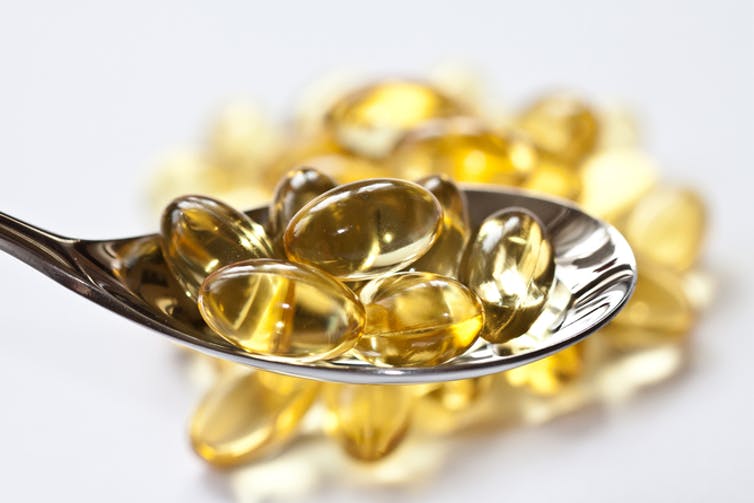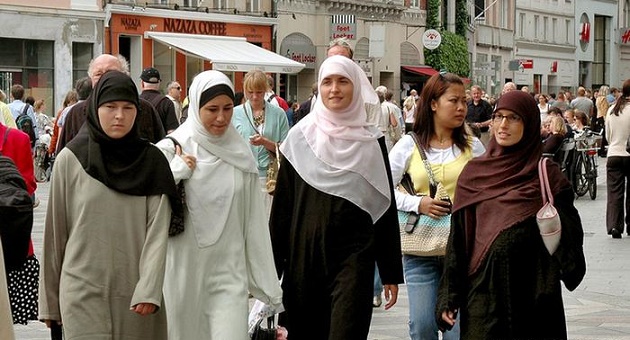- STV: Immigrating to Scandinavia is not only peace and joy, but can lead to serious health problems
- It says the Swedish weather may prove particularly difficult to suffer for those hailing from the Middle East and Africa, who adhere to the Islamic code.
- A link between wearing Islamic garments, such as burqa and niqab, and vitamin D deficiency has been pointed out before, as regular exposure to sunlight is the most natural way of getting enough vitamin D
STOCKHOLM – Muslims and other people living in or migrating to Sweden have been warned, in a new TV campaign, of possible health problems and vitamin D deficiency due to the Nordic climate’s darkness, Sputnik News reported.
“A general recommendation in Sweden now prescribes vitamin D tablets to anyone who is either dark-skinned or wearing comprehensive clothing. But for many it would be far too low of a dose,” midwife Kristina Wally-Byström said.
The Swedish national broadcaster SVT focused on Muslims, especially women, who wear hijab or burqa (full-face veil).
This is despite the fact that even natives, who wear heavy winter clothes to be warm and stay indoors, are also subjected to Vitamin D deficiency because of the sunless weather of Scandinavia.

Warnings for Migrants
In parallel with the national TV campaign, the daily newspaper ‘Svenska Dagbladet’ stated that incidentally, this Vitamin D deficiency is three to four times more common among Somali children in Sweden, according to Monica Löfvander, associate professor at the Centre for Clinical Research in Västerås.
Nutritionist and doctor of medical science Linda Bakkman also identified burqa-wearing dark-skinned ladies as a risk group as regards vitamin D deficiency, which may result in cancer, diabetes, and cardiovascular diseases.

Reality Behind Vitamin D
Vitamin D is a group of steroid hormones that increase the absorption of calcium, magnesium, and phosphate, beside multiple other biological effects such as bone-strengthening, cell growth, neuromuscular and immune functions, and inflammation reduction.
The most important of this vitamin group is Vitamin D3 which can be ingested from a natural diet and synthetic supplements, but only a few foods contain vitamin D. The major natural source of the vitamin is a synthesis of Vitamin D3 in the skin through the sun’s Ultraviolet B radiation.
Dietary recommendations typically assume that all of a person’s vitamin D is taken by mouth, as sun exposure in the population is variable and recommendations about the amount of sun exposure that is safe are uncertain in view of the skin cancer risk.
As vitamin D can be synthesized in adequate amounts by most mammals exposed to sufficient sunlight, it’s not an essential dietary factor. Vitamin D supplements are given to treat or to prevent osteomalacia and rickets.

Problem for Muslims?
Mainstream Islamic hijab doesn’t cover excessive areas of skin more than Scandinavian winter clothes. A Muslim woman can still gain Vitamin D from sunlight through her face, hands, and feet.
Just like native Scandinavian people who are advised to go outdoors during the sunless winter to have as much Vitamin D as possible, Swedish Muslims are also advised to do so.
Allah created Melanin pigments to protect our skin, hair, and eyes from harmful sun rays. Dark-skinned human ethnicities produce more pigments for greater protection against sunlight. That’s while blond people with lighter hair and gray, blue, or green eyes are at a greater risk regarding excessive sunlight exposure.
Hence, it’s true that dark-skinned people in sunless climates need more exposure to sunlight to compensate the lost sunlight blocked by their protecting Melanin pigment, but it’s also noteworthy that the biggest majority of Muslim ethnicities are not black-skinned. Moreover, several Muslim ethnic groups are light-skinned like Siberian Tatars, Bashkirs, and others.